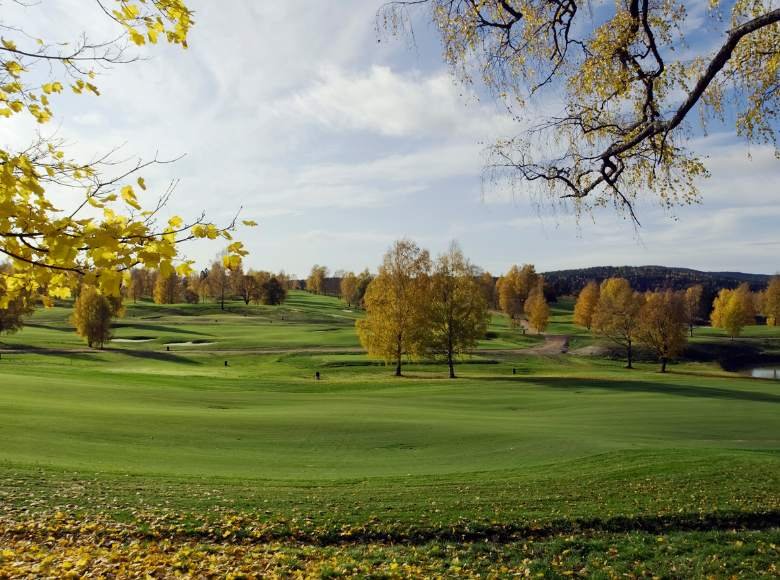When it comes to preparing for fall turfgrass care during cooler weather in Florida, it begins with understanding the region’s unique climate, adjusting the mowing heights, allocating optimal time for aeration and dethatching, tending to winter resilience through proper fertilization, implementing effective weed and pest control programs, ensuring proper hydration and irrigation, considering overseeding for winter, and conducting fall renovation and repair.
As the vibrant green of summer starts to fade and a crispness enters the air, it’s a signal that fall is approaching. For many parts of the United States, fall represents a time of transition in various aspects of life, and this is especially true for turfgrass care. In Florida, where the climate is unique and often warm throughout the year, the arrival of fall brings about a different set of considerations for maintaining a healthy and lush lawn. Preparing your turfgrass for the cooler weather ahead is essential to ensure its vitality and beauty.
Understanding Florida’s Unique Climate
Florida’s climate is characterized by its subtropical and tropical zones, resulting in a somewhat atypical seasonal progression compared to the rest of the country. While many regions experience a drastic change from summer to fall, Florida’s transition is more subtle. The temperature drop may not be as steep, and the state can continue to experience periods of warmth well into the fall months. However, the arrival of fall still triggers changes in the growth patterns and maintenance needs of turfgrass.
Adjusting Mowing Heights
One of the key considerations when preparing turfgrass for the fall season is adjusting mowing heights. During the hotter summer months, it’s common to maintain a slightly higher mowing height to provide some shade for the soil and protect the grass roots from excessive heat. However, as fall arrives, gradually lowering the mowing height can be beneficial. Lower grass blades allow more sunlight to reach the soil, promoting better air circulation and reducing the risk of disease.
Aeration and Dethatching

Fall is an optimal time for aeration and dethatching, especially in Florida where warm-season grasses like Bermuda, Zoysia, and St. Augustine dominate. Aeration involves perforating the soil with small holes to alleviate compaction and improve the flow of air, water, and nutrients to the grassroots. Dethatching, on the other hand, is the removal of accumulated layers of dead grass and debris from the lawn’s surface. Both practices enhance the overall health of the turfgrass by fostering better root development and nutrient absorption.
Fertilization for Winter Resilience
Fall is also a crucial period for fertilization, as it prepares the turfgrass for the cooler months ahead. While Florida’s winters are relatively mild compared to northern states, the grass still experiences a slower growth rate during this time. Applying a balanced, slow-release fertilizer in the fall provides essential nutrients that the grass can store and use throughout the winter months. This extra nourishment helps the turfgrass maintain its color and vitality, ensuring a lush start to the spring growing season.
Weed and Pest Control
Fall is an opportune time to address any existing weed and pest issues. Weeds tend to be less aggressive during this season, making them more susceptible to control measures. Applying pre-emergent herbicides can prevent the germination of weed seeds, and post-emergent herbicides can effectively target existing weeds. Additionally, addressing any pest problems, such as chinch bugs or armyworms, before the cooler weather sets in can prevent these pests from causing more damage during the winter months when the grass is less resilient.
Hydration and Irrigation
Proper hydration remains essential during the fall months. While the frequency of irrigation may decrease compared to the summer months, it’s important to ensure that the turfgrass receives sufficient water to endure any dry spells. Inconsistent watering can lead to shallow root systems and increase the grass’s susceptibility to stress and disease. Consider monitoring the weather and adjusting your irrigation schedule accordingly.
Overseeding for Winter Color
In some parts of Florida, overseeding with cool-season grasses can be considered as fall approaches. This practice is more common in the northern regions of the state where temperatures do drop significantly. Overseeding involves planting cool-season grass seeds, such as ryegrass, over the existing warm-season turfgrass. This provides a lush green color during the winter when the warm-season grasses go dormant. However, overseeding requires careful management to avoid competition between the two grass types and to ensure a smooth transition when spring arrives.
Fall Renovation and Repair
Fall also presents an opportunity for lawn renovation and repair. If your turfgrass has developed patches or areas of thin growth, fall is an ideal time to address these issues. Reseeding or sodding these areas can help the grass fill in before the dormant winter period, resulting in a more uniform and healthy lawn when spring returns.
Fall turfgrass care in Florida involves a strategic approach that takes into account the state’s unique climate and the specific needs of warm-season grasses. As the temperatures gradually shift and the landscape transforms, implementing practices like adjusting mowing heights, aeration, fertilization, and pest control can ensure that your lawn remains vibrant and resilient throughout the fall and into the coming winter months. By giving your turfgrass the attention it needs during this transitional period, you’ll set the stage for a lush and beautiful lawn when spring emerges once again.
When cooler weather approaches in Florida, trust in DTE Golf® for expert guidance on maintaining your turfgrass. With tailored solutions for a subtropical climate, DTE Golf® offers a comprehensive range of products and practices to ensure your turf remains vibrant and resilient throughout the fall season and beyond.
